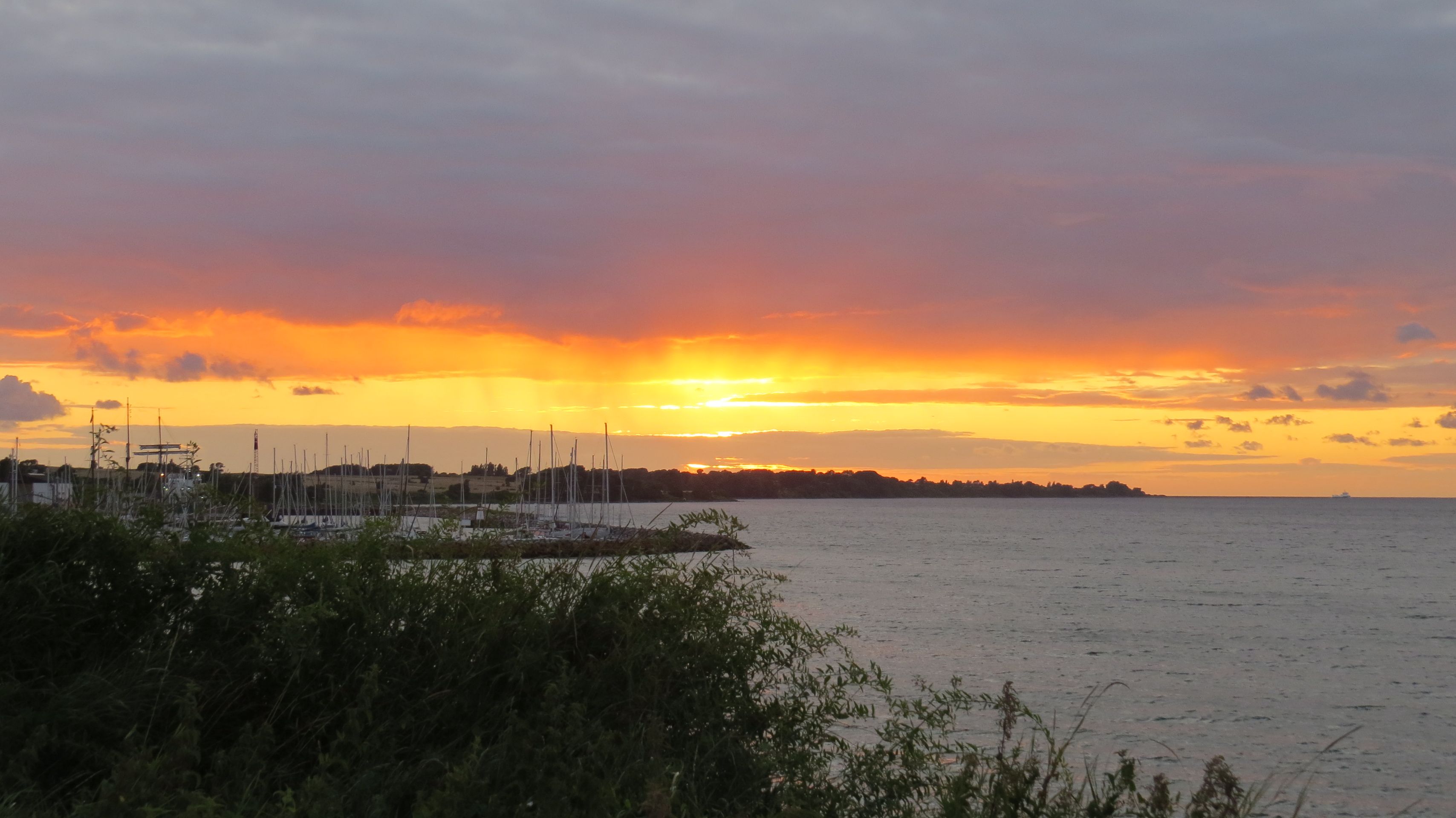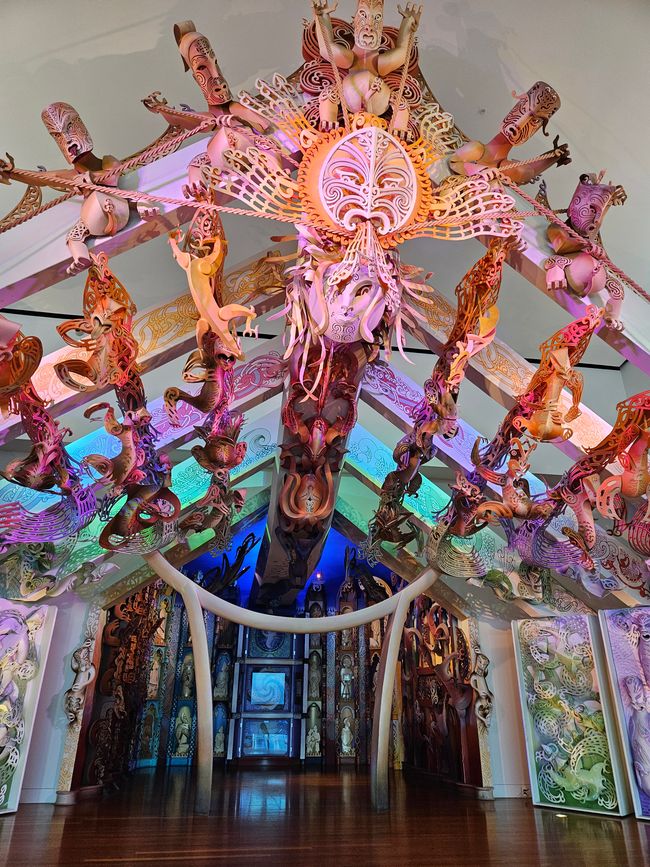Tongarewa Park
Naipablaak: 10.01.2024
Agsubscribe iti Newsletter
Te Papa Tongarewa means “place of treasures” and I think a name for a museum couldn’t be more appropriate. It is the National Museum of New Zealand. You don't have to pay an entrance fee here, you only have to pay something for a special exhibition about dinosaurs.
There are several exhibitions in the museum. I go to the nature exhibition first. There are a lot of people there. New Zealand animals are on display: kiwi, moa and various other birds. What really excites me is that there is a lot you can touch in the museum. Here you can also touch a moa bone, there is an imprint of a moa foot or you can smell various things.
The nature exhibition is not just about the animals, but also about New Zealand's origins: volcanism and plate tectonics. It shows which types of rock are "created" during a volcanic eruption and in a time lapse you can see how the Taupo volcano erupted over many thousands of years and what impact that had on nature. Last but not least, there is also a house in the area where you can feel what an earthquake feels like. Of course there are a lot of people waiting in front of it, but I'll get in line. Inside the house, a scene from a household is shown with a mother and son who experience an earthquake and how they behave during it: crawl under the table!
There is also an area in the museum dedicated to the history of the War at Gallipoli. The “interesting” thing about this area is that the story is told through people. These people are depicted as figures that are 2.4 times larger than real ones. Mall can recognize all emotions in their faces. I found that very interesting.
Another area deals with the change in nature through the introduction of new species through the settlement of New Zealand. A pertinent comment is given here: "When Mark Twain visited New Zealand in 1895, he wrote: The man who introduced the rabbit there was celebrated and praised; but he would be hanged now if he could be caught." Rabbits are considered a pest here, as are conifers. On the South Island I experienced entire mountain slopes being cleared or only white, bare tree trunks remaining. The trees were sprayed so that they would die. The conifers have simply spread too much here and displaced the native flora. We are now taking action against this. It looks the same with deer and stags. They are caught here and sold to Europe and Asia... And on the streets you always see a sign asking if you have seen a wallaby and you should please report it...
Another part of the exhibition is dedicated to the Maori. A huge meeting house is shown, among other things, but photographs are not allowed.
There is sooo much to see in this museum. I was there for over 3.5 hours and only skimmed through most of it.
Agsubscribe iti Newsletter
Sungbat

Dagiti report ti panagbiahe Baro a Selanda


